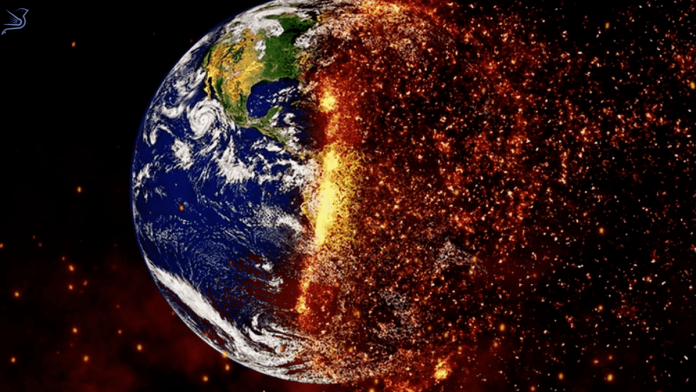The Intergovernmental Panel on Climate Change (IPCC) recently released the first part of its Sixth Assessment Report (AR6) titled Climate Change 2021: The Physical Science Basis on climate change 2021. It is prepared by the scientists of Working Group-I. The two remaining parts would be released in 2022.
Key points in the report
Faster Warming
The report provides new estimates of the chances of crossing the global warming level of 1.5°C in the next decades and 2°C by the middle of the century without sharp reduction of emissions. It stated that at 2°C of global warming, heat extremes would more often reach critical tolerance thresholds for agriculture and health.
The last decade has been the hottest on record in the past 1, 25,000 years. The global surface temperature was 1.09°C higher between 2011 and 2020 than it was between 1850 and 1900.
Carbon Dioxide Emission
They are the highest in at least two million years. Humans have emitted 2,400 billion tonnes of CO2 since the late 1800s. Since the late 1800s, humans have emitted 2,400 billion tonnes of CO2.
Human actions, particularly the burning of fossil fuels, are responsible for the majority of this.
Human activities have caused the climate to warm at a rate not seen in the last 2,000 years. The world’s carbon budget has already been drained by 86 percent.
Heat Extremes and Rainfall
Every additional warming by 0.5 degrees Celsius will increase heat extremes, extreme precipitation, and draughts. At the global scale, extreme daily rainfall events are projected to intensify by about 7% for each 1°C of global warming. Extreme rainfall events are defined as the daily precipitation amount over land that was exceeded on average once in a decade during the 1850–1900 reference period.
Receding Snowline and Melting Glaciers
The retreating snowlines and melting glaciers are reasons for concern, as they may alter the water cycle, precipitation patterns; increase floods, and raise water scarcity in the Himalayan states in the future.
Sea-Level Rise
When compared to 1901-1971, the rate of rise in sea level has more than tripled. The Arctic Sea ice cap is at its lowest point in 1,000 years.
Sea levels will continue to increase in coastal locations throughout the twenty-first century, causing coastal erosion and more frequent and severe floods in low-lying places.
Thermal expansion is responsible for around half of the rise in sea level (when water heats up, it expands, thus warmer oceans simply occupy more space).
Net Zero Emissions
It means that all man-made greenhouse gas emissions must be removed, reducing the Earth’s net climatic balance to zero after removal via natural and artificial sinks.
The state reports that net-zero by 2050 was the minimum required to keep the temperature rise to 1.5 degree Celsius.
India, the world’s third largest emitter, has resisted, claiming that it was already doing far more than was required, and that it was outperforming other countries in relative terms.
According to the IPCC, a global net-zero by 2050 is the bare minimum required to keep global warming to 1.5°C. This would not be possible without India.
China, the world’s biggest emitter, has a net-zero goal for 2060.
IPCC’s Prediction for India
- Heatwaves are the first challenge. heat waves cause massive damage in India. Not only do they damage crops and other forms of agriculture, but they severely affect human health, even causing scores of deaths across the country.
- The second is the projection regarding monsoon patterns across the world, specifically Asia. Monsoon precipitation is also likely to change, with annual and summer monsoon precipitation both expected to rise.
- The Indian Ocean has warmed faster than the global average, including the Arabian Sea and Bay of Bengal. When global warming is 1.5°C to 2°C, the sea surface temperature across the Indian Ocean is likely to rise by 1 to 2°C.
- The sea temperature in the Indian Ocean is rising at a faster rate than in other parts of the world, which could have an impact on other areas.
Intergovernmental Panel on Climate Change (IPCC)
The IPCC is an international organization that evaluates science related to climate change. The World Meteorological Organization (WMO) and the United Nations Environment Programme (UNEP) established it in 1988 to offer policymakers with periodical evaluations of the scientific basis for climate change, its impacts and future risks, as well as adaptation and mitigation strategies.
There is a need for a drastic and immediate cut in carbon emissions, given that the changes to the climate already made are not reversible.
We covered all the major points highlighted in the Climate Change Report 2021 by the IPCC.




